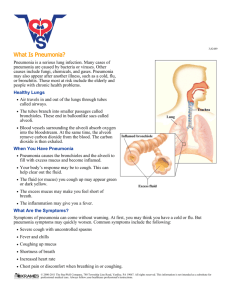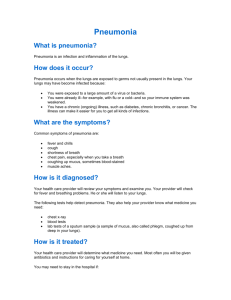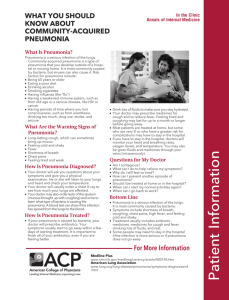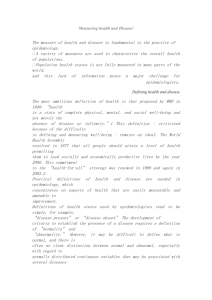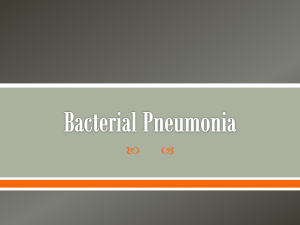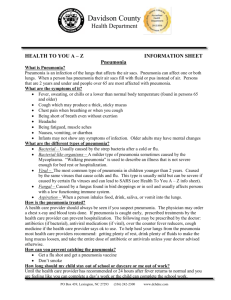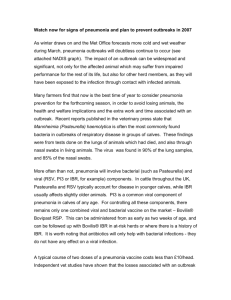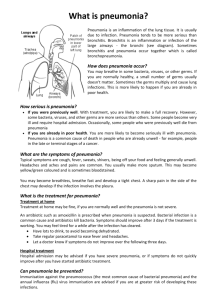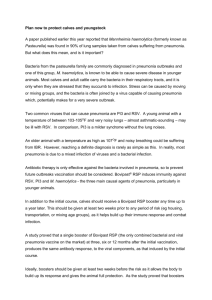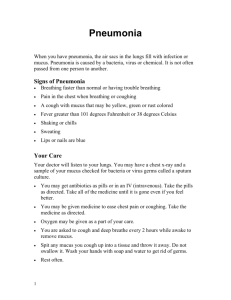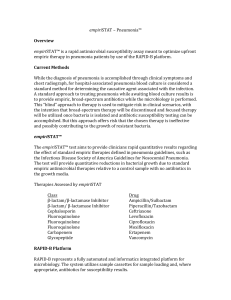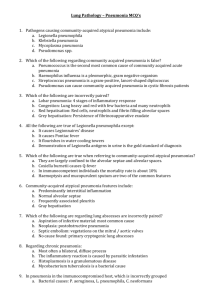What is pneumonia? Pneumonia is a lung infection that can make
advertisement
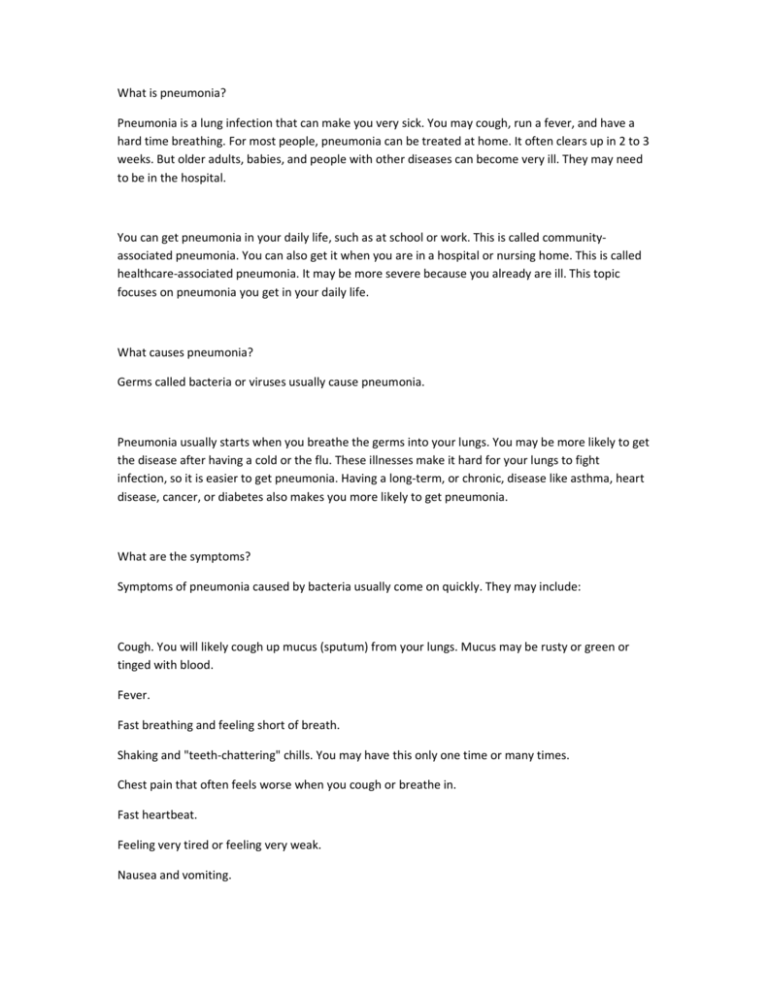
What is pneumonia? Pneumonia is a lung infection that can make you very sick. You may cough, run a fever, and have a hard time breathing. For most people, pneumonia can be treated at home. It often clears up in 2 to 3 weeks. But older adults, babies, and people with other diseases can become very ill. They may need to be in the hospital. You can get pneumonia in your daily life, such as at school or work. This is called communityassociated pneumonia. You can also get it when you are in a hospital or nursing home. This is called healthcare-associated pneumonia. It may be more severe because you already are ill. This topic focuses on pneumonia you get in your daily life. What causes pneumonia? Germs called bacteria or viruses usually cause pneumonia. Pneumonia usually starts when you breathe the germs into your lungs. You may be more likely to get the disease after having a cold or the flu. These illnesses make it hard for your lungs to fight infection, so it is easier to get pneumonia. Having a long-term, or chronic, disease like asthma, heart disease, cancer, or diabetes also makes you more likely to get pneumonia. What are the symptoms? Symptoms of pneumonia caused by bacteria usually come on quickly. They may include: Cough. You will likely cough up mucus (sputum) from your lungs. Mucus may be rusty or green or tinged with blood. Fever. Fast breathing and feeling short of breath. Shaking and "teeth-chattering" chills. You may have this only one time or many times. Chest pain that often feels worse when you cough or breathe in. Fast heartbeat. Feeling very tired or feeling very weak. Nausea and vomiting. Diarrhea. When you have mild symptoms, your doctor may call this "walking pneumonia." Older adults may have different, fewer, or milder symptoms. They may not have a fever. Or they may have a cough but not bring up mucus. The main sign of pneumonia in older adults may be a change in how well they think. Confusion or delirium is common. Or, if they already have a lung disease, that disease may get worse. Symptoms caused by viruses are the same as those caused by bacteria. But they may come on slowly and often are not as obvious or as bad. How is pneumonia diagnosed? Your doctor will ask you about your symptoms and do a physical exam. He or she may order a chest X-ray and a blood test. This is usually enough for your doctor to know if you have pneumonia. You may need more tests if you have bad symptoms, are an older adult, or have other health problems. In general, the sicker you are, the more tests you will have.

